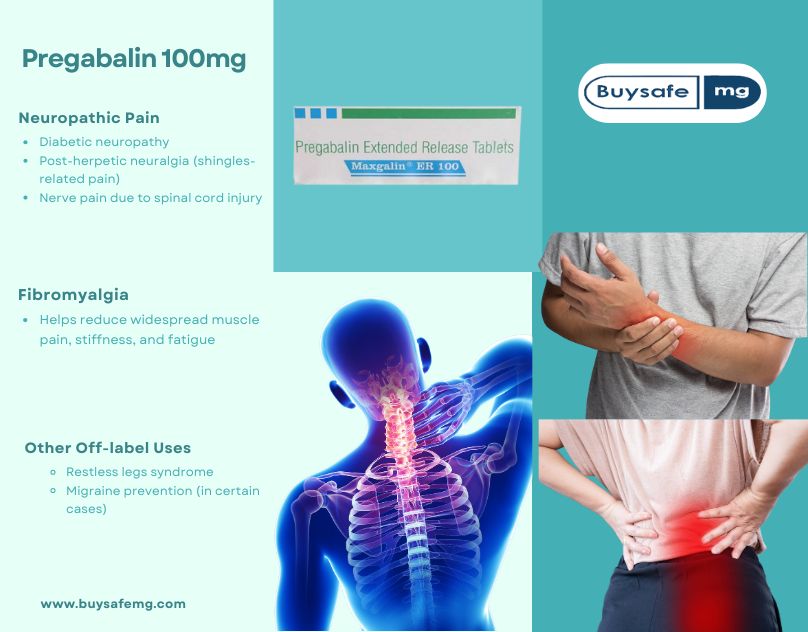Imagine you’re running a manufacturing plant, an IT startup, a hospital, or a college. Your team’s working hard, but there’s a nagging worry: are you delivering the quality your customers expect? Enter ISO 9001 certification, the gold standard for quality management that’s like a North Star for businesses. It’s not just a certificate to hang on your wall; it’s a promise to your clients, students, or patients that you’re all about consistency and excellence. But why is ISO 9001 certification such a big deal for industries like manufacturing, IT, healthcare, and education? Let’s break it down, with a bit of spice and a lot of heart.
What’s the Buzz About ISO 9001 Certification?
At its core, ISO 9001 certification is about quality management. It’s a set of standards that ensures your processes deliver consistent, high-quality results, every single time. Think of it as a recipe for success: you identify what your customers need, set up systems to deliver it, and keep tweaking until it’s just right. For manufacturing, IT, healthcare, and education, ISO 9001 certification is a universal language of trust, understood from Mumbai to Munich.
Why does this matter? Because in these industries, quality isn’t optional—it’s everything. A faulty car part could lead to a recall, a software glitch could crash a client’s system, a hospital error could risk lives, and a poorly managed school could fail its students. ISO 9001 certification helps you avoid those pitfalls by giving you a framework to streamline processes and exceed expectations.
Key Benefits of ISO 9001 Certification
- Consistency: Ensures every product or service meets the same high standard.
- Customer Trust: Proves you’re committed to quality, winning loyalty.
- Efficiency: Streamlines operations, saving time and resources.
- Global Reach: Opens doors to international markets with recognized standards.
How ISO 9001 Certification Works Its Magic
Getting ISO 9001 certification isn’t a walk in the park, but it’s not climbing Everest either. It starts with understanding your processes—every step, from raw materials to customer feedback. You map out what you do, spot weak links, and build systems to fix them. It’s like tuning a sitar: every string needs to be just right for the music to flow. Certification bodies guide you through this, conducting audits to ensure you meet the standard’s requirements.
The process involves a gap analysis—think of it as a health checkup for your business. You compare your current operations to ISO 9001 standards, identifying areas that need work. Maybe your documentation’s a bit spotty, or your staff need more training. Once you’ve tightened those bolts, auditors visit to review your systems. Pass the audit, and you’re certified. Flub it, and you get a chance to fix things and try again. Either way, ISO 9001 certification makes your business stronger.
Why Manufacturing Can’t Thrive Without ISO 9001 Certification
In manufacturing, precision is king. Whether you’re producing car components or electronics, one tiny error can snowball into a massive problem. ISO 9001 certification ensures your production line is as reliable as a monsoon rain. It covers everything from raw material checks to final inspections, making sure every widget meets customer specs. For Indian manufacturers aiming for global markets, ISO 9001 certification is non-negotiable—clients like Tata or Mahindra won’t touch you without it.
But it’s not just about avoiding mistakes. ISO 9001 certification helps manufacturers streamline operations, reduce waste, and boost efficiency. It’s like clearing the clutter from a busy workshop—suddenly, everything runs smoother. Plus, it builds trust with clients, showing them you’re not just churning out products but delivering quality they can bank on.
ISO 9001 Certification in IT: Keeping the Code Clean
India’s IT sector is a global powerhouse, but with great power comes great responsibility. Clients demand software that’s reliable, secure, and delivered on time. ISO 9001 certification helps IT companies deliver just that. It’s like a debugging tool for your entire operation, ensuring your processes—from coding to testing—are consistent and top-notch.
For IT firms, ISO 9001 certification means fewer project delays, happier clients, and a reputation for excellence. It’s especially crucial when working with international clients who expect world-class standards. And here’s a little digression: in a city like Bengaluru, where IT hubs buzz like a festive bazaar, ISO 9001 certification is your way to stand out in the crowd. It’s proof you’re not just another startup but a serious player.
Why IT Needs ISO 9001 Certification
- Reliable Deliverables: Ensures software meets client expectations.
- Process Clarity: Streamlines development and testing phases.
- Client Confidence: Builds trust with global and local partners.
- Error Reduction: Minimizes bugs and project hiccups.
Healthcare and ISO 9001 Certification: A Matter of Trust
In healthcare, there’s no room for error. Whether you’re running a hospital or manufacturing medical devices, patient safety is paramount. ISO 9001 certification ensures your processes—from patient care to equipment maintenance—are consistent and reliable. It’s like a doctor’s oath for your entire operation, promising quality at every step.
For Indian healthcare providers, ISO 9001 certification is a way to build trust with patients and regulators. It shows you’re not just treating symptoms but creating a system that prioritizes care. I once spoke to a hospital administrator in Delhi who said earning ISO 9001 certification felt like “giving our patients a guarantee of care.” That’s the kind of impact it has—both practical and emotional.
Education Gets a Boost with ISO 9001 Certification
Education might seem like an odd fit for ISO 9001 certification, but hear me out. Schools and colleges are businesses too, with students and parents as their customers. ISO 9001 certification helps institutions streamline everything from admissions to classroom management, ensuring a top-notch experience. It’s like giving your school a syllabus for success.
In India, where education is a cornerstone of ambition, ISO 9001 certification sets institutions apart. It ensures consistent teaching standards, efficient administration, and happy students. For a college in Chennai or a school in Kolkata, it’s a way to show parents you’re not just teaching but building a future they can trust.
How ISO 9001 Certification Helps Education
- Streamlined Operations: Simplifies admissions and administration.
- Student Satisfaction: Ensures consistent, high-quality education.
- Parental Trust: Builds confidence in your institution’s standards.
- Continuous Improvement: Encourages ongoing process refinement.
Common Missteps and How to Dodge Them
Even the best businesses can stumble on their way to ISO 9001 certification. One big trap? Skimping on documentation. You might have the tightest processes in town, but if your records are a mess, auditors will raise an eyebrow. Treat documentation like your business’s diary—every detail counts. Another mistake is thinking your current setup is “good enough.” Spoiler: it’s probably not. ISO 9001 certification demands excellence, and half-measures won’t cut it.
Training is another sticking point. Your team needs to live and breathe ISO 9001 principles. Skip the workshops, and you’re setting yourself up for a rough audit. Regular training, mock audits, and clear communication are your best friends here. Trust me, a little prep goes a long way.
The Ripple Effect of ISO 9001 Certification
Here’s the cool part: ISO 9001 certification doesn’t just fix your processes—it transforms your business. It’s like adding a fresh coat of paint to a house; suddenly, everything looks sharper. Employees take pride in their work, operations get leaner, and clients notice the difference. Plus, ISO 9001 certification opens doors to global markets, where it’s often a must-have for contracts.
In India’s competitive landscape, ISO 9001 certification is your edge. It’s a signal to clients, students, or patients that you’re not just playing the game but winning it. And let’s not forget the cultural angle—India’s love for excellence, from cricket to cuisine, makes ISO 9001 certification a perfect fit. It’s about delivering quality that’s as reliable as a monsoon after a hot summer.
Industries Transformed by ISO 9001 Certification
- Manufacturing: Fewer defects, happier clients.
- IT: Smoother projects, fewer bugs.
- Healthcare: Safer care, stronger trust.
- Education: Better systems, brighter futures.
Staying Certified: It’s a Marathon, Not a Sprint
Earning ISO 9001 certification is just the beginning. Staying compliant is where the real work happens. Certification bodies don’t just hand you a certificate and vanish—they expect you to maintain those standards. Regular audits, ongoing training, and a culture of quality are key. It’s like tending a garden: you can’t just plant the seeds and walk away.
But here’s the good news: compliance gets easier with time. Once your team gets the hang of ISO 9001 principles, it becomes second nature. And the payoff? Smoother operations, happier customers, and a reputation that shines brighter than a Diwali lamp.
Tips to Stay ISO 9001 Compliant
- Internal Audits: Catch issues before auditors do.
- Team Training: Keep everyone sharp and informed.
- Tech Tools: Use software like eQMS for documentation.
- Continuous Improvement: Always look for ways to get better.
Why ISO 9001 Certification Is Worth the Effort
At its heart, ISO 9001 certification is about more than following rules. It’s about building a business that stands for quality, trust, and excellence. In industries like manufacturing, IT, healthcare, and education, where competition is fierce, ISO 9001 certification is your secret weapon. It’s your promise to deliver, whether it’s a flawless product, a bug-free app, a safe hospital, or a top-tier education.
So, if you’re wondering whether to take the plunge, let me leave you with this: ISO 9001 certification isn’t just a requirement—it’s an opportunity. A chance to refine your processes, inspire your team, and make your mark in a crowded market. Ready to step up your game?



